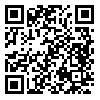Articles accepted at the time of publication
Back to the articles list |
Back to browse issues page
Habib Rezaee *  1, Shahin Nemat zadeh2
1, Shahin Nemat zadeh2  , Shahram Modarres khiyabani3
, Shahram Modarres khiyabani3  , Ahmad Mohseni4
, Ahmad Mohseni4  , Naghmeh Taghva5
, Naghmeh Taghva5 
 1, Shahin Nemat zadeh2
1, Shahin Nemat zadeh2  , Shahram Modarres khiyabani3
, Shahram Modarres khiyabani3  , Ahmad Mohseni4
, Ahmad Mohseni4  , Naghmeh Taghva5
, Naghmeh Taghva5 
1- education employee , h_rezaee_en@yahoo.com
2- linguistics PhD Faculty member Al-Zahra University
3- linguistics PhD Faculty member Karaj Azad university
4- English Teaching PhD Faculty member South Tehran Azad university
5- Psychology PhD Member of the management team of the World Association of Positive Psychology in Iran
2- linguistics PhD Faculty member Al-Zahra University
3- linguistics PhD Faculty member Karaj Azad university
4- English Teaching PhD Faculty member South Tehran Azad university
5- Psychology PhD Member of the management team of the World Association of Positive Psychology in Iran
Abstract: (3869 Views)
Well-being includes phenomena such as mental health, life satisfaction, positive attitude and feeling happiness. The present study deals with the relationship between language and well-being and claims that well-being factors are expressed in the words of the language. For example, the happiness factor in a language is reflected by certain words such as happy, happiness and satisfied. The theoretical framework of the present study is ecolinguistics. The method is corpus based. The data is extracted from the research of Secretariat of Emotional Intelligence of Tehran Education in 2017. In this study, the well-being status of 1095 high school students, the first and second period, girls and boys, public and private of District One of Tehran have been evaluated. The students' responses to the question about well-being criteria are the base of the present study. The corpus consists of 1161 words with a frequency of 35,455. The content words associated with the five Well-being factors of engagement (occupation and entertainment), perseverance, optimism, connectedness and happiness were extracted in the framework of the semantic map of Jiaqi Wu et al. (2017), by using top-down method. They were analyzed using Excel and SPSS soft-wares. Some examples of the words that represent the well-being factor of happiness are: “relaxation, facilities, happy, healthy, fun, health, happiness, excellent, pleasant, relaxed, happy, satisfied, faith, satisfaction, enjoyed, happiness, joy, and fun”. The research findings show 6845 words of the corpus (about35.7%) are related to well-being, and there is a significant relationship between well-being factors and produced words
Keywords: Well-being, Well-being factors, high school students, Well-being vocabulary, Ecolinguistics
Send email to the article author
| Rights and permissions | |
 |
This work is licensed under a Creative Commons Attribution-NonCommercial 4.0 International License. |






